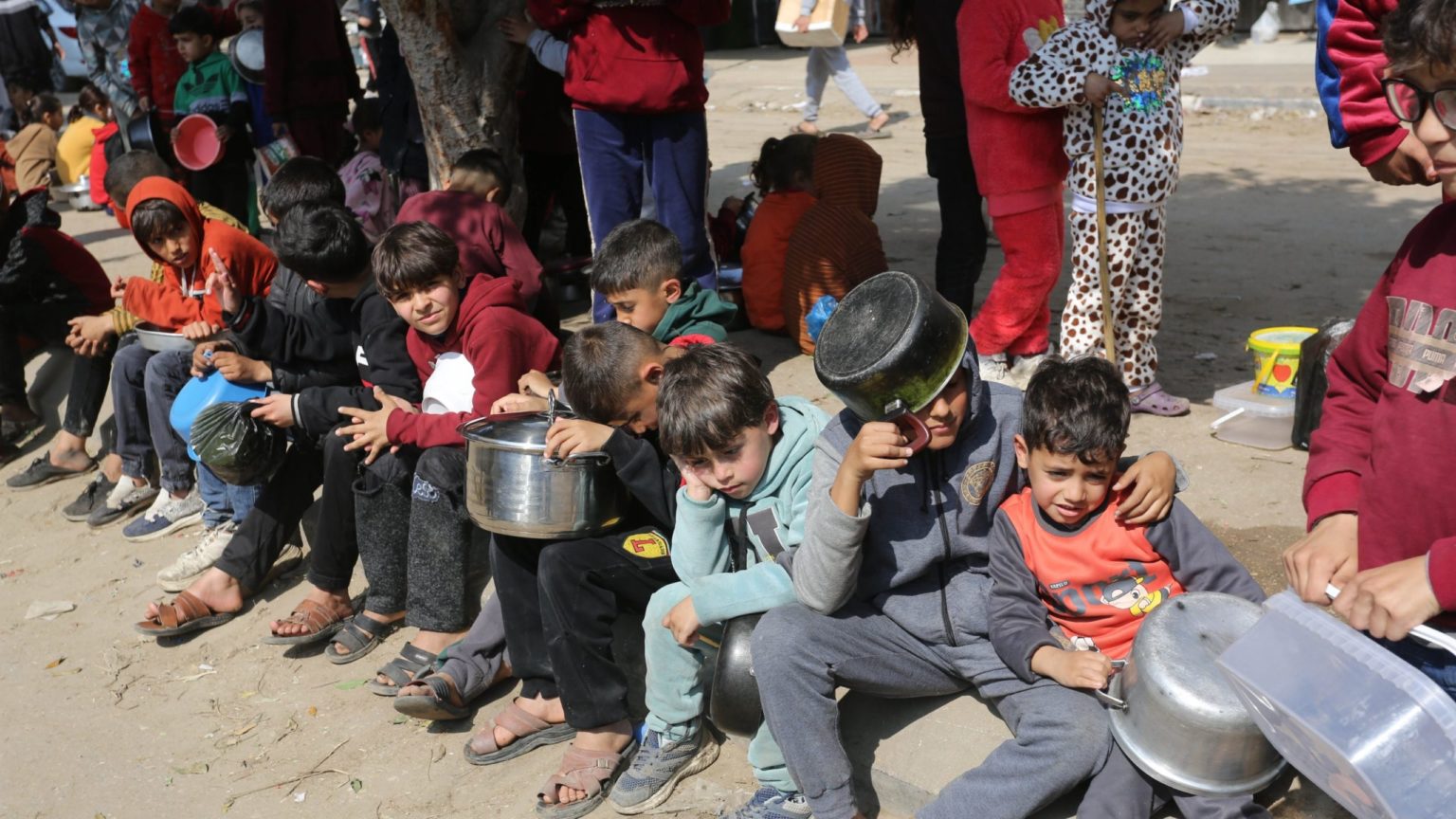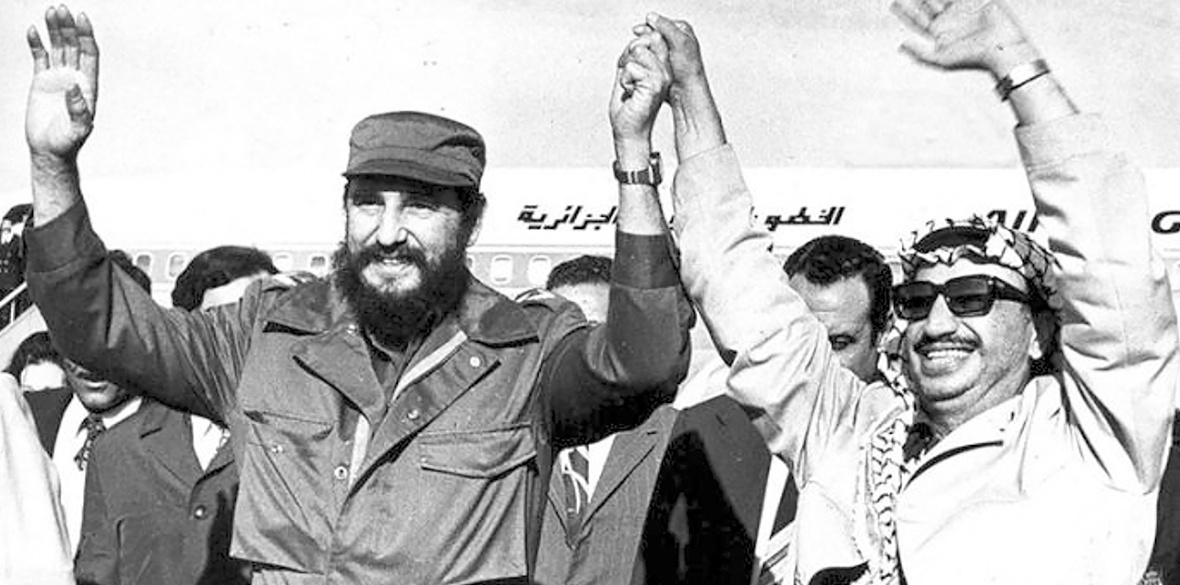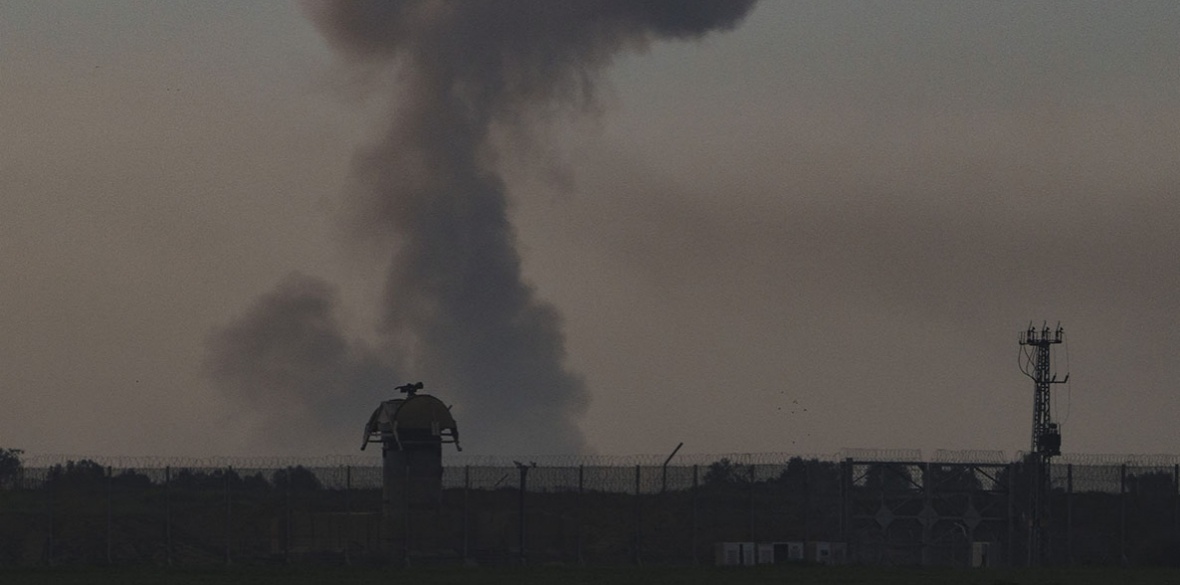ICJ expands urgent measures in genocide case against Israel as famine “sets in” in Gaza
Original article by Tanupriya Singh republished from peoples dispatch under a Creative Commons Attribution-ShareAlike 4.0 (CC BY-SA) license.

The Court has issued orders for Israel to “ensure” the “unhindered provision” of humanitarian aid, as 31 people have been killed due to deliberate starvation in Gaza
Noting that the “catastrophic living conditions of the Palestinians in the Gaza Strip have deteriorated further,” the International Court of Justice (ICJ) has ordered Israel to take additional measures, including “unhindered provision” of basic necessities and humanitarian assistance, as the Occupation continues its genocidal war for the sixth month.
The ruling was issued on March 28 in response to a request by South Africa calling on the Court to take further action “in light of the new facts and changes in the situation in Gaza— particularly the situation of widespread starvation”.
According to the latest Integrated Food Security Phase Classification (IPC) analysis, both North Gaza and Gaza Governorates are “classified in IPC Phase 5 (Famine) with reasonable evidence, with 70% of the population in IPC Phase 5 (Catastrophe).”
On March 24, the head of the UN Relief and Works Agency (UNRWA) stated that Israel had informed the UN that it would no longer approve the agency’s food convoys to north Gaza. Only 11 aid convoys of the World Food Programme have reached the area since the start of 2024.
In January, Israel accused UNRWA, without any concrete evidence, of employing over 450 “military operatives”. Israel’s allies in the west immediately began suspending funding for the agency, even as it has been revealed that Israel had tortured and coerced UNRWA staffers into giving false confessions.
Meanwhile, the US Congress has now voted to defund UNRWA as part of a USD 1.2 trillion spending bill. The legislation, which simultaneously provides the annual USD 3.8 billion in funding to Israel, will also limit aid to the Palestinian Authority (PA) in the occupied West Bank if the Palestinians initiate or support an investigation by the International Criminal Court (ICC) into Israel’s crimes.
South Africa’s request was part of the case it brought against Israel in December, accusing it of violating its obligations under the 1948 Convention on the Prevention and Punishment of the Crime of Genocide. Ahead of a full hearing of the case, South Africa had called on the Court to issue interim measures to prevent “severe and irreparable harm” to the Palestinians as Israel continued and escalated its attacks.
On January 26, the Court found that it was plausible that Israel was committing genocide in Gaza and ordered six measures, including for Israel to “take all measures within its powers to prevent the commission of all acts within the scope of the [Genocide] Convention.”
These acts include killing, causing serious bodily or mental harm, “deliberately inflicting conditions of life calculated to bring about its physical destruction in whole or in part,” and imposing measures intended to prevent births.
As it became immediately clear that Israel had no intentions of obeying these legally binding measures, South Africa approached the ICJ for additional measures in February. However, the Court declined to expand on its order.
Starvation and massacres escalate
In a second attempt on March 6, South Africa stated that Gazans are no longer at “immediate risk of death by starvation,” noting that at least 15 children had died of starvation in the week leading up to its submission.
“These deaths are “man-made, predictable and entirely preventable. It is predicted that they will increase exponentially and not linearly in the absence of a cessation of military activities and a lifting of the blockade,” it had said, adding that Israel had repeatedly used humanitarian aid as a “bargaining chip in negotiations” by creating a “hostile, inoperable environment for aid agencies.”
The application was submitted days after the “Flour Massacre”—neither the first nor the last atrocity of its kind. The massacre “forms part of an escalating pattern of fatal attacks by Israel on the Palestinian people it is deliberately starving, as they seek access to aid,” South Africa stated.
In its ruling on Thursday, the ICJ observed that “Palestinians in Gaza are no longer facing only a risk of famine… but that famine is setting in, with at least 31 people, including 27 children, having already died of malnutrition and dehydration.”
Also cited it a statement made by UN human rights chief Volker Türk that the “situation of hunger, starvation and famine is a result of Israel’s extensive restrictions on the entry and distribution of humanitarian aid and commercial goods, displacement of most of the population, as well as he destruction of crucial civilian infrastructure.”
The Court held that “there is no substitute for land routes and entry points from Israel into Gaza to ensure the effective and efficient delivery of food, water, medical and humanitarian assistance; there is an urgent need to increase the capacity and number of open land crossing points into Gaza and to maintain them open…”
The ruling took “note” of “certain declarations of representatives of the UN and the various organizations… according to which the catastrophic humanitarian situation can only be addressed if the military operations in the Gaza Strip are suspended [emphasis added].”
Also acknowledged is the UN Security Council resolution 2728, which “[d]emand[ed] an immediate ceasefire for the month of Ramadan respected by all parties leading to a lasting sustainable ceasefire.”
Not only was the Resolution’s text amended to call for a “lasting” instead of a “permanent” ceasefire under US’ threat of veto, the US ultimately went on to absurdly claim that the resolution was non-binding—statements also rejected by the UN and other SC member states.
It is important to note that the month of Ramadan, and by extension the proposed ceasefire period, is set to end in less than two weeks.
The Court also noted that since its ruling on January 26, Israel had killed over 6,600 additional people in Gaza and injured another 11,000. Given that the original provisional measures did not address the changes in the situation in Gaza—including the “unprecedented levels of food insecurity” and the increasing risks of epidemics—the ICJ concluded that its original decision had to be modified.
The ICJ “reaffirmed” its previous provisional measures and has ordered three further measures: a) that Israel must take all measures to ensure “without delay, in full cooperation with the UN, the unhindered provision at scale…of urgently needed basic services and humanitarian assistance” and b) ensure “with immediate effect” that its military does not commit acts that violate the rights of the Palestinian people under the Genocide Convention.
Israel has been given one month to submit a report to the Court on all measures taken to implement the order.
In its original application to the Court, South Africa had demanded an order calling on Israel to immediately cease its military operations in and around Gaza. While this measure was not explicitly granted, a ceasefire could be inferred, as South Africa’s foreign minister Naledi Pandor argued, because “without it, the Order would not work,” including the delivery of humanitarian aid.
Nevertheless, while the ICJ ruling did not order cessation of Israel’s military actions on Thursday, seven judges from the Court’s bench issued separate statements stating that the Court should have explicitly ordered a suspension of Israel’s operations, “including its planned military operation in Rafah,” or at least acknowledging that a ceasefire was necessary for its orders to take effect.
“It is indeed the very right of existence of the Palestinian population of Gaza that is currently at risk of irreparable prejudice,” said Judge Abdulqawi Ahmed Yusuf.
Importantly, he stated, “The argument that a State party to the Convention that is involved in a conflict with a non-State actor is not under an obligation to suspend its military operations to prevent genocide or should not be ordered to do so, unless the non-State actor is disarmed, makes no sense whatsoever. It is contrary to the very idea of prevention of genocide and to the objectives of the Convention…”
“All the indicators of genocidal activities are flashing red in Gaza… The provisional measures indicated by the Court are binding. They are not something that a State party to the Convention is free to respect or to ignore according to its own pleasure. They must be implemented,” ICJ Judge Yusuf had said.
“In the same way that a State party to the Convention has a duty to prevent genocide in its territory whatever may be the nature of the forces or actors opposing it, it has also the obligation to prevent genocide in any territory which such party invades or occupies. This is the case with respect to the situation in Gaza.”
This was reiterated in the joint opinion of Judges Xue Hanqin, Leonardo Nemer Caldeira Brant, Juan Manuel Gómez Robledo, and Dire Tladi—“Israel’s dominant control over Gaza explains why Israel has the primary responsibility to ensure unhindered and unimpeded access, in particular the land cross access for the delivery of humanitarian assistance… For that purpose, suspension of military operations… appears indispensable.”
Israel’s “humanitarian camouflage”
During the hearings on the provisional measures in January, Israel had deployed two key arguments to deny that it was committing genocide in Gaza. One being its supposed facilitation of humanitarian assistance to Gaza, even though it had already been reported at the time that the entire population of Gaza was suffering from “crisis or worse” levels of food insecurity; and it’s supposed adherence to international humanitarian law as a way to justify its mass killings and bombings of critical infrastructure.
This second tactic was examined in a report published by the UN Special Rapporteur on the occupied Palestinian territories (OPt), Francesca Albanese, on March 25, titled “Anatomy of a Genocide” which concluded that there were “reasonable grounds to believe that the threshold indicating Israel’s commission of genocide is met.”
The report documents three acts of genocide being committed by Israel—killing members of the group, causing serious bodily or mental harm to members of the group, and deliberately inflicting on the group conditions of life calculated to bring about its physical destruction in whole or in part.
“More broadly, [the context, facts and analysis] indicate that Israel’s actions have been driven by a genocidal logic integral to its settler-colonial project in Palestine.”
“Punishing their indigeneity and rejection of colonization, Israel construed Palestinians as a ‘security threat’ to justify their oppression and “de-civilianization,” namely the denial of their status as protected civilians.”
This “de-civilianization,” Albanese argues, has intensified since October 7 through Israel’s use of International Humanitarian Law (IHL) terminology such as human shields, collateral damage, safe zones, and evacuations, which has “transformed an entire national group and its inhabited space into a destroyable target, revealing an eliminationist conduct of hostilities.”
The report notes that Israel has repeatedly accused Palestinian resistance groups of “deliberately using civilians as human shields” in its wars of aggression on Gaza and the 2018 Great March of Return protests—even as it was later proved that the evidence had been fabricated—to “justify widespread and systematic killing” of Palestinians.
“Israel [has] transformed Gaza into a “world without civilians” in which “everything from taking shelter in hospitals to fleeing for safety is declared a form of human shielding.”
This strategy has been extended to the infrastructure required to sustain life in Gaza—including hospitals—with Israel systematically attacking medical workers and facilities for being Hamas “command centers” or “headquarters,” “legitimizing the destruction of Gaza’s entire healthcare sector.”
The report also connects this policy of shielding with Israel’s evacuation orders, particularly the one issued on October 13 forcing people to move to south Gaza—“Israel illegally categorized the inhabitants of northern Gaza who had remained (including the sick and wounded) as “human shields” and “accomplices” of terrorism.”
“This policy points to the intention by Israel to ‘transform’ hundreds of thousands of civilians into ‘legitimate’ military targets or collateral casualties through impossible-to-follow evacuation orders.” Not only that, Israel targeted evacuees and residents of designated safe zones—“safe areas were deliberately turned into areas of mass killing.”
“Israel considers any object that has allegedly been or might be used militarily as a legitimate target, so that entire neighborhoods can be razed or demolished under fictions of legality… Rationalizing patterns of attacks on civilian objects, knowingly killing civilians en masse, has become military strategy premised upon probable war crimes,” Albanese notes.
Importantly, she also addresses Israel’s use of the notion of “proportionate collateral damage to knowingly shell large numbers of members of the protected group”. The way Israel has gone about this, is by “defining military advantage, in each attack, in relation to the destruction of the whole Hamas organization both politically and militarily.”
“It is manifestly illegal to declare as a war aim the destruction of the other side’s political capacity (particularly in the context of a 56-year military occupation which deprives the occupied population of its right to self-determination.”
Meanwhile, Ireland has announced that it will intervene in the case, as has the State of Palestine, which stated that despite the Court’s orders, “Israel’s relentless aggression persists… violating Palestinian rights under the Genocide Convention.”
“Equally, many states have failed to honor their erga omnes obligations [obligations owed to the international community as a whole] to adhere to and implement the ICJ’s order, thereby entrenching complicity in these grave acts, including the political and military aiding and abetting of the perpetrators of the genocide.”
Original article by Tanupriya Singh republished from peoples dispatch under a Creative Commons Attribution-ShareAlike 4.0 (CC BY-SA) license.



